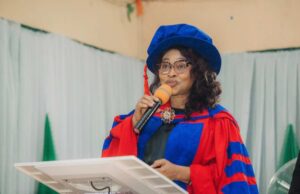The National Board for Technical Education has called for its upgrade to the National Polytechnic Commission in the country.
The board stressed the need for greater collaboration with the House Committee on Polytechnics to achieve the goal.
NBTE Executive Secretary, Prof. Idris Bugaje, made the plea during a presentation to the House Committee on Polytechnics, chaired by Fuad Laguda.
The Chairman and members of the House Committee were on an oversight visit to the Board in Kaduna on Wednesday.
“We warmly welcome this committee to the NBTE, and we look forward to greater collaborations to move this sector forward. The struggle to upgrade NBTE to the National Polytechnic Commission has started, and your support is indispensable in realizing this dream,” Bugaje said.
Established by Decree No. 8 of 1977 and amended in 1985 and 1992, NBTE supervises, accredits, and regulates over 700 Technical and Vocational Education and Training (TVET) institutions in the country.
Bugaje highlighted the critical role TVET plays in addressing the nation’s skill gaps, particularly in infrastructure development.
“No economy can grow without infrastructure. We have the AKK Gas Pipeline, Trans-Saharan Natural Gas Pipeline, Rail Upgrade and Expansion, Mambila Power Plant, and Dangote Refinery and Urea Plant, among others,” he said.
However, Bugaje lamented that these projects were being executed with imported skilled labour from Asia, while Nigerian youths remained jobless.
“Every polytechnic has a Skills Development Center, established with TETFund intervention. We must utilize these facilities to train our youths,” he added.
The NBTE boss also identified some challenges facing TVET institutions, including poor funding, outdated curricula, lack of modern equipment, and stigmatization of TVET graduates.
“The 2024 budget was our worst, with significant cuts at the National Assembly. We need adequate funding to review ND/HND curricula within the five-year time frame,” Bugaje said
He also expressed concern over the National Skills Qualification Framework (NSQF), approved by the Federal Executive Council in 2013 and implemented in 2017, saying that ”NSQF provides a bridge between workplaces and education/training institutions, ensuring quality assurance for all stakeholders.”
Bugaje warned that the NSQF was under threat from the ITF Amendment Act 2024 while noting that “we must protect this framework to ensure Nigeria’s skill development aligns with global standards.”
Regarding NBTE’s land dispute in Abuja, Bugaje recounted the longstanding issue, noting that “In 2003, the land was allocated to NBTE at Maitama with Certificate of Occupancy No. 445. However, DB Mangal seized two-thirds of the land and built ‘Murjanatu House’ for commercial renting.”
The matter is currently before the Appeal Court. “We seek the Tinubu Administration’s investigation into this and nine other critical inherited corruption matters,” Bugaje added.
In his response, the House Committee Chairman assured the NBTE of the committee’s support. “We will work closely with the NBTE to address the challenges facing TVET institutions and ensure Nigeria’s skill development meets global standards.”
The presentation was attended by members of the House Committee on Polytechnics, NBTE officials, and stakeholders in the education sector.










